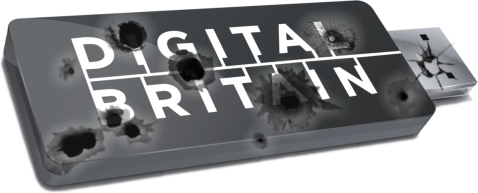Digital Britain government report: Six months on

The Digital Britain report was set to revolutionise the island in terms of maintaining and continuing technological advancement. While it may well not affect you America, your closest ally (us, Britain, apparently) will over time become the western e-economy and technologically advanced nation others can only hope to be.
Or will it?
There were key points made during the report:
Universal 2MB broadband by 2012: allowing even those in rural communities and those still on dial-up Internet to be able to access at least 2MB speeds by 2010. However, this has caused controversy by adding a 50p tax on every monthly phone bill (£6 a year) to pay for the rollout. There are roughly 32 million landlines in the UK, meaning each month roughly £16-20m (upwards of £200m a year) will be generated to support the copper cable installation.
A Home Access scheme will be brought out to help low income families as well as a potential student market who struggle as it is to pay for rising energy and telecommunication bills.
Funding next generation broadband through fibre-optics being used as the main backbone for the UK. While parts are already in place, billions will be spent on replacing the copper infrastructure, which will ultimately benefit all citizens through the advancement of other technologies like high-definition on-demand television and gaming. Yet little has been done in this area and probably won't for some time as it isn't a major priority along with other items in the report.
Digital radio rollout by 2015, along with other digital television services to move away from traditional analogue and terrestrial stations. This will mean greater number of channels and better quality broadcasts. Digital television has already switched over in a number of areas of the UK, but will still take up and including 2012 for the full switchover.
ISP's to become partners in Internet policing along with law enforcement and government agencies in a new online crime fighting partnership. Not only will child sexual abuse be targeted, home wireless networks will be attempted to be protected (how, I don't know) and online piracy.
Lord Carter, author of the report, explained to the BBC not only how the report will take action but also mentioned the controversial topic of online piracy and illegal file sharing.
While I have covered Internet piracy extensively and mentioned the Digital Britain report a number of times, you can find these links below for further coverage.
- Read more: Gov. to pirates: we'll slow you down, not cut you off
- Read more: Broadband Britain, Accelerating America
- Read more: Kicking Internet pirates off the web
Not much has physically changed yet however the moves are clear and the chess pieces are moving in favour of an overall win. Yet, many are still sceptical over some of the plans and some won't come into action or be visibly obvious for a number of years.
For now, all we can focus on is the digital switchover, the liberalisation of the 3G networks for mobile broadband, and watch Internet pirates getting their arses handed to themselves on a plate, even though the punishments to be imposed is still not yet clear.
